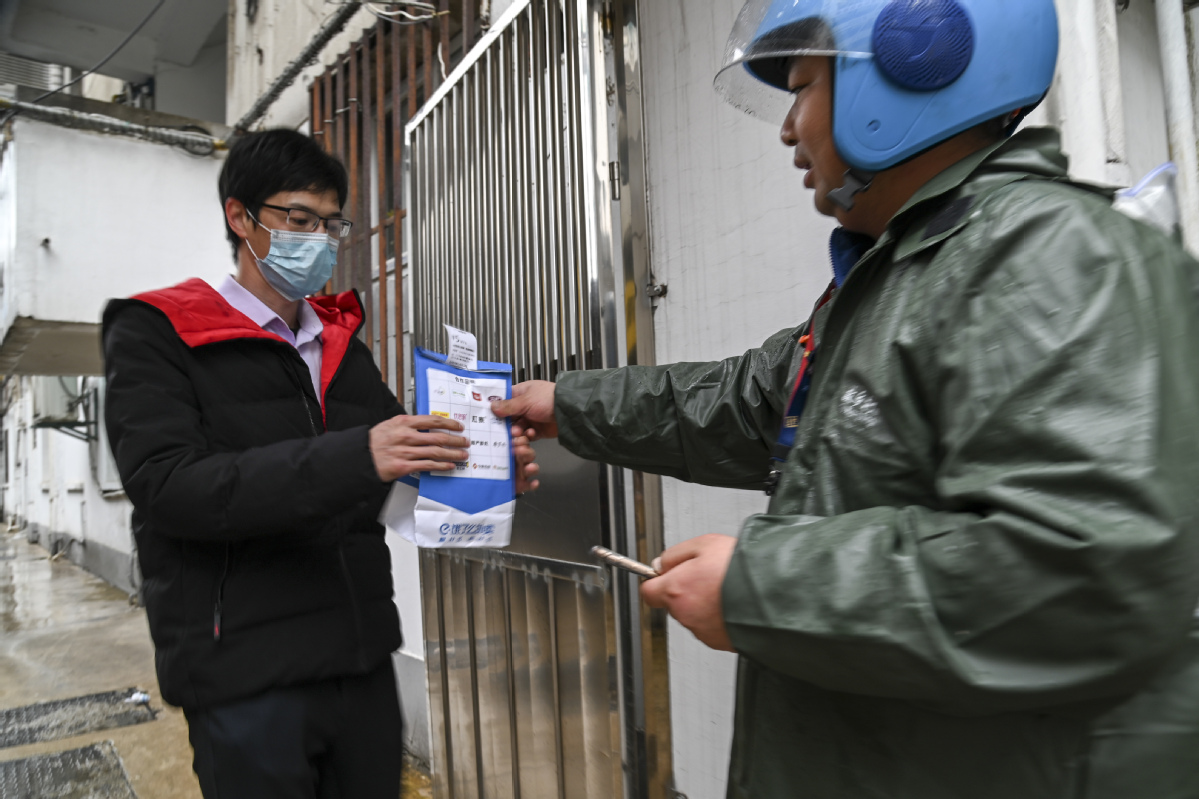Sales of prescription pills get a fillip from e-commerce platforms
By Zheng Yiran | China Daily | Updated: 2021-06-12 09:20

Online sales of prescription medicines are bringing more conveniences to Chinese consumers, thanks to a slew of policies that are helping supervise the sector, experts said.
Su Qingzi, a 30-year-old office clerk in Beijing, usually purchased most of her prescription medicines from offline stores. On May 31, Su woke up with a sore throat and wanted to get some cold medicine urgently. Reluctant to go outside to a pharmacy, she downloaded an e-commerce pharmacy app and tried to purchase the medicines online.
"The whole process was surprisingly smooth. I registered on the app, consulted an online doctor, and based on my symptoms the doctor wrote out a prescription, and then I was able to purchase the medicine and schedule its delivery. Within half an hour, the medicine was delivered at my doorstep," Su said.
In April, the State Council issued a document, stating that based on authentic and credible e-prescriptions, prescription medicines, except those under special control, can be sold via online platforms.
"The document legalized and standardized many activities of online medicine sales that were once in a gray zone. The sector will see rapid development," said Shi Lichen, general manager of Beijing-based consultancy Beijing Dingchen Management Consulting Co Ltd.
As prescription medicines are required to be taken under the guidance of medical professionals, online channels were not allowed to sell them initially. Since then, there have been several regulations pertaining to the sector.
In 2013, the National Medical Products Administration approved pilot online prescription drug retail in Shanghai, Hebei province and Guangdong province. However, in 2017 and 2018, the NMPA issued two documents that effectively banned online sales of prescription medicines.
The COVID-19 epidemic boosted the development of online healthcare last year, and related policies started to loosen. On November 12, the NMPA issued a draft guideline for supervision on sales of medicines via online platforms, which allowed prescription medicines to be displayed and sold online.
"The NMPA's draft guideline on supervision of online drug sales, which was open to public opinion, demonstrates the government's serious intent about the sector. This is beneficial to the standardized and sustainable development of the internet-based healthcare industry, and will encourage enterprises to offer more convenient healthcare services to the public through new technologies," said Yu Gang, co-founder and executive chairman of 111 Inc, a Nasdaq-listed online pharmacy.
"Based on feedback from industry players, such as 111 Inc, the administration has made great improvements in the documents for the display of prescription medicines and the terms of sale. The document conforms to our actual business circumstance, and ensures medicine safety for the public, while offering a clear road map for the development of the industry," he said.
According to a report from Citibank, full liberalization of the sales of online prescription medicines will force a reshuffle in the entire pharmaceutical industry. In addition, selling prescription medicines online eliminates the intermediary sales links, and thus promotes price declines of expensive medicines.
"Currently, the main distribution channel for prescription medicines comes from hospitals and offline pharmacies. Online pharmacies have great room for growth, especially for companies like Alibaba's AliHealth, JDH Online Healthcare under JD and 111 Inc," said the report.
Data from business information provider Tianyancha showed that by April 19, there were nearly 7,000 registered enterprises whose businesses were related to e-prescriptions.
"Due to the government's favorable policies, already existing e-commerce pharmacies will be able to strengthen their business strategies for improved market share, while the capital market will help newcomers enter the sector. Online prescription medicine sales have entered a rapid development stage,"Shi said.
Since detailed rules and regulations for the sector are yet to come out, the supervision departments must work out the necessary details to guide e-commerce platforms to sell prescription medicines.
Meng Lilian, chief expert at Sichuan Tianfu Health Industry Research Institute, said: "The regulatory standards should guarantee the quality of prescription medicines, and prevent the entrance of low-quality and fake medicines to the market. It is important to establish a drug tracing system."
"In addition, e-prescriptions must always be written by certified doctors, who should ensure that conforms to the standards," he said.
























